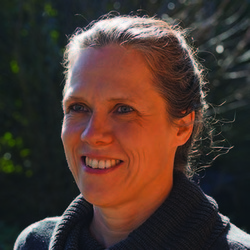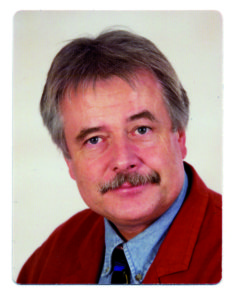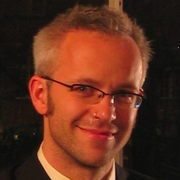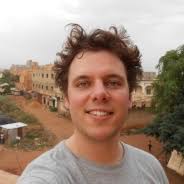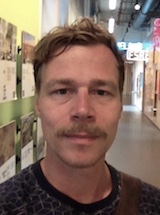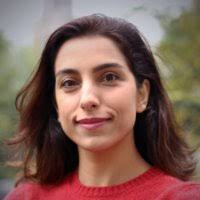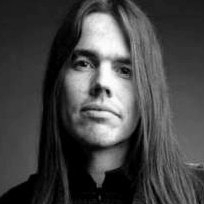|
|
A German native, I have lived in Belgium, France, Japan, the United States and now the Netherlands and have traveled extensively through Europe, Asia, North Africa and North America. My mental map of my “hometown” is thus composed of bits and pieces from around the world. It includes such monuments as the Eiffel Tower in Paris, the Palace of Justice in Brussels or the Benjamin Franklin Bridge in Philadelphia as well as Hamburg’s Elbe river, or Tokyo Bay. My city is not only composed of famous landmarks, though; it includes just as much vernacular architecture and everyday neighbourhoods. I have been interested in the study of architectural and urban history as much as in urban reality, in citizen movements and transportation systems from around the world. |
|
|
Dirk Schubert is Professor em. for Urban Planning, Comparative Planning History, Housing and Urban Renewal at the HafenCity University Hamburg. His research focuses on urban history, planning history, history of housing and urban renewal, particularly on studies on transformations of harbour and waterfront areas in seaport regions and city/port interface areas. He is (co-)editor of several journals. His last two books are about the urban thinker and theorist Jane Jacobs and her impact on urban planning. He is elected IPHS (International Planning History Society) President, Chair of the Fritz Schumacher Society Hamburg and Chair of the Scientific Committee of the Porto Vecchio Trieste. For further details please check: https://www.hcu-hamburg.de/en/research/arbeitsgebiete/dirk-schubert/ |
|
|
Beate Löffler received an engineering degree in Architecture (University of Applied Studies in Potsdam) and majored in Medieval History and the History of Art (TU Dresden) afterwards. Inspired by onsite experiences in Tokyo, she did a doctoral study on Christian church architecture in Japan, which was completed in 2009. As leader of the research group Urban Systems in East Asia at the IN-EAST School of Advanced Studies, University of Duisburg-Essen, her current postdoctoral research project is focused on the transcultural exchange of architectural knowledge between western nations and Japan as a medium of cultural communication. |
|
|
Jan van Gemert received a BSc degree from Fontys University of Applied Sciences and a MSc and PhD degree from the University of Amsterdam. He he was a post-doctoral fellow at École Normale Supérieure in Paris, France, with Prof. J. Ponce, and at the University of Amsterdam, with Prof. Th Gevers and Dr. C. Snoek. Currently he is an assistant professor at the Technical University Delft. His research interests include image analysis, visual encodings, image and video categorization, action and object recognition and localization. In this field he has published over 40 papers where several are cited more than 100 times. |
|
|
Researcher in the field of Linked Data, Semantic Web and Web Science, specifically in the domain of Digital Humanities, Cultural Heritage and ICT for Development. My aim is to use a broad and interdisciplinary approach to Web information science. |
|
|
Tino Mager studied media technology in Leipzig and art history and communication science in Berlin, Barcelona and Tokyo; 2004 graduate engineer (Diplom), 2009 Magister Artium. In 2015 he received his PhD at the Institute for Art and Historical Urban Studies of the TU Berlin with the thesis “Schillernde Unschärfe – der Begriff der Authentizität im architektonische Erbe“. The dissertation was funded by an Elsa Neumann Fellowship and was awarded the interdisciplinary Tiburtius Prize (1st prize) for outstanding dissertations. He completed research stays in Japan and at the University of California, Los Angeles and was a lecturer at the Technical University of Berlin and the ITU Istanbul. Subsequently, scientific assistant at the Chair of History and Theory of Architecture at the TU Dortmund and postdoctoral fellow of the Leibniz Association. Since 2017 he has been a postdoc at the Chair of History of Architecture and Urban Planning at the TU Delft.
Tino’s main interests include heritage conservation and cultural heritage theory. In addition, he has published on post-war modernist architecture and its preservation, on Japanese architecture and the transnational education of artists in the 19th century. As part of the ArchiMediaL project, he is working on the development of methods for the use of artificial intelligence in architectural historical research. |
|
|
Seyran Khademi received her BSc. degree in Electrical Engineering with telecommunications minor, in 2005 from University of Tabriz. She got her MSc degree in signal processing for telecommunications from Chalmers University of Technology in Gothenburg, Sweden in 2010. She did her MSc thesis under the supervision of Prof. Mats Viberg, Prof. Thomas Eriksson and Dr. Thomas Svantesson (ArrayComm). She defended her PhD at Circuits and Systems (CAS) group at Delft University of Technology (TUD), The Netherlands in November 2016 with specialization in the optimization techniques for signal processing. She was appointed as a postdoctoral researcher in CAS group at TUD, from 2015 to 2017 working on audio and speech processing. From February 2017, she is a post-doc at Computer vision Lab at TUD working on deep learning techniques for image processing. She is now working on image analysis for ArchiMedialL project to combine machine learning and signal processing for data mining in the related historical datasets for built. |
|
|
Ronald received his MSc. in Artificial Intelligence at the VU University Amsterdam. He received his PhD at the Knowledge Representation and Reasoning group at the VU University Amsterdam, The Netherlands in September 2006 with thesis titled as Semantic Routing in Peer-to-Peer Systems. |
 |
The Volkswagen Foundation is dedicated to the support of the humanities and social sciences as well as science and technology in higher education and research. It funds research projects in path-breaking areas and provides assistance to academic institutions for the improvement of the structural conditions for their work. In particular, the Foundation perceives its mission in supporting aspiring young academics and in promoting interdisciplinary and international collaboration. |
Enriching and linking historical architectural and urban image collections
